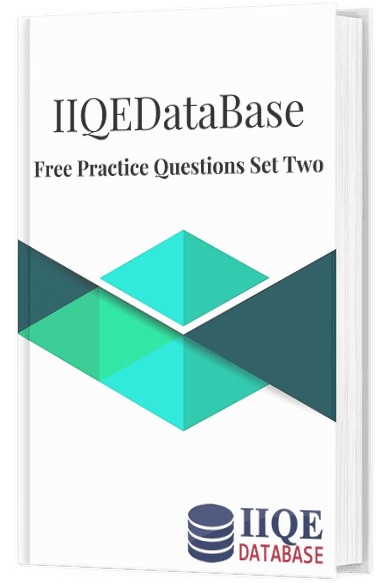Do you want to ace the IIQE Insurance Contracts and Principles Exam?
Well, here’s an interesting statistic for you: 95% of candidates who understand the fundamentals of insurance contracts and principles pass with flying colors.
In this article, we will delve into the key concepts and principles of insurance law, explore different types of insurance contracts, and discuss the legal and ethical considerations in the insurance industry.
So, let’s dive in and master these exam concepts together!
Key Takeaways
- Insurable interest is crucial in insurance contracts and refers to the financial stake or relationship a person has in the subject matter of the policy.
- Utmost good faith requires both parties to act honestly and disclose all relevant information in insurance contracts.
- Transparency, fairness, and the protection of policyholders are ensured through utmost good faith and insurance regulations.
- The principle of indemnity ensures that an insurance policy compensates the policyholder for the actual amount of loss suffered and prevents overcompensation or profiting from a loss.
Fundamentals of Insurance Contracts
Now, let’s dive into the fundamentals of insurance contracts and understand how they work.
In an insurance contract, two important concepts come into play: insurable interest and utmost good faith.
Insurable interest refers to the financial stake or relationship that a person has in the subject matter of the insurance policy. This means that in order to have a valid insurance contract, you must have a legitimate reason to protect that subject matter from potential loss or damage.
Utmost good faith, on the other hand, requires both parties involved in the contract to act honestly and disclose all relevant information. This ensures that there is transparency and fairness throughout the insurance process.
Understanding these concepts is crucial as they form the foundation of insurance contracts.
Moving forward, let’s explore the principles of insurance law and how they shape the insurance industry.
Principles of Insurance Law
However, it’s important to understand the principles of insurance law when studying for the IIQE exam.
Insurance regulations and the principles of indemnity are key concepts that form the foundation of insurance law.
Insurance regulations:
These are laws and guidelines established by regulatory bodies to govern the insurance industry.
They ensure fair practices, protect policyholders, and maintain the stability of the industry.
Principles of indemnity:
This principle states that an insurance policy is designed to compensate the policyholder for the actual amount of loss suffered.
It ensures that the policyholder is not overcompensated or profited from a loss.
Understanding these principles will help you navigate the complexities of insurance law and make informed decisions during the IIQE exam.
Moving forward, let’s delve into the key concepts in insurance policy interpretation.
Key Concepts in Insurance Policy Interpretation
To better understand insurance policy interpretation, you should familiarize yourself with the key terms and provisions within the policy. This will enable you to navigate through the complexities of insurance contracts and ensure that you fully comprehend the coverage provided.
One crucial aspect of policy interpretation is ambiguity resolution. Insurance policies are often intricate and can contain unclear or contradictory language. When faced with such ambiguity, it is essential to employ interpretive techniques to determine the intended meaning.
Additionally, coverage exclusions play a significant role in insurance policy interpretation. These exclusions outline the specific circumstances or risks that are not covered by the policy. Understanding these exclusions is crucial to avoid any surprises or misunderstandings when filing a claim.
By grasping these key concepts, you will be better equipped to interpret insurance policies accurately and make informed decisions regarding your coverage.
As we move into the section on types of insurance contracts, it is important to recognize the foundation laid by understanding policy interpretation.
Types of Insurance Contracts
Take a moment to familiarize yourself with the various types of insurance policies available, as this will help you choose the one that best suits your specific needs and circumstances. Understanding the different types of insurance contracts is crucial in protecting yourself from potential risks and liabilities.
Here are three types of insurance contracts you should be aware of:
Negligence Liability Insurance: This type of insurance provides coverage for damages resulting from negligence, where the insured party fails to exercise reasonable care. It protects individuals or businesses from claims filed against them for causing harm or injury due to their negligence.
Indemnity Clauses: These clauses are commonly found in insurance contracts and provide protection against financial losses. They ensure that the insured party will be compensated for any damages or losses incurred, up to the specified limit of the policy.
Personal Liability Insurance: This type of insurance is designed to protect individuals from claims made against them for causing bodily injury or property damage to others. It provides coverage for legal defense costs and any damages awarded in a lawsuit.
Understanding the different types of insurance contracts, including negligence liability and indemnity clauses, is essential in making an informed decision when choosing the right insurance policy.
Now, let’s delve into the legal and ethical considerations in insurance.
Legal and Ethical Considerations in Insurance
Understanding the legal and ethical considerations in insurance is vital for ensuring that you make responsible and informed decisions when it comes to selecting the right policy. As a consumer, you have ethical obligations to act in good faith and provide accurate information to the insurer. Additionally, insurance companies have their own ethical obligations to treat customers fairly and honestly. Regulatory compliance is another important aspect, as insurance is a highly regulated industry to protect consumers from fraud and unfair practices. It is essential to understand the laws and regulations that govern insurance contracts and to ensure that both parties are in compliance. The table below summarizes some key legal and ethical considerations in insurance:
| Legal Considerations | Ethical Considerations | Regulatory Compliance |
|---|---|---|
| Contract validity | Honesty and transparency | Consumer protection |
| Policy exclusions | Fair treatment of customers | Anti-fraud measures |
| Claim settlement process | Confidentiality | Licensing requirements |
Frequently Asked Questions
What Are the Benefits of Insurance Contracts for the Insured Party?
Insurance contracts offer numerous benefits to the insured party. Firstly, they provide financial protection against unexpected events, offering coverage for damages or losses.
They also provide peace of mind by reducing uncertainty and minimizing potential financial burdens. Insurance contracts allow individuals to transfer risk to the insurer, ensuring they are not solely responsible for bearing the costs of unforeseen circumstances.
Furthermore, insurance contracts promote stability and economic growth by facilitating investment and entrepreneurship.
Ultimately, insurance contracts offer a vital safety net and promote a sense of security for the insured party.
How Do Insurance Policies Differ From Other Types of Contracts?
Insurance policies differ from other types of contracts in several ways.
Unlike a typical contract, an insurance policy is designed to provide financial protection in the event of a specific loss or damage.
It is a legally binding agreement between the insured party and the insurance company.
Insurance policies also have unique features such as premium payments, coverage limits, and policy exclusions.
Understanding these differences is crucial in ensuring that you have the right coverage for your specific needs.
Can an Insurance Contract Be Cancelled by the Insured Party at Any Time?
Yes, you have the right to cancel an insurance contract at any time. The cancellation process typically involves notifying the insurance company in writing and providing a reason for the cancellation.
However, it’s important to note that cancelling a policy may result in the loss of any premiums paid and could impact your ability to obtain insurance in the future.
It’s advisable to carefully consider the implications before deciding to cancel your insurance policy.
What Are the Consequences of Breaching an Insurance Contract?
Breaching an insurance contract can have serious consequences. When you fail to fulfill your obligations under the contract, you may face legal implications.
The consequences can include financial penalties, loss of coverage, and damage to your reputation. Insurance companies have the right to deny claims and even pursue legal action against you for breach of contract.
It is important to carefully review and understand the terms of your insurance contract to avoid these consequences.
How Are Insurance Claims Usually Resolved in Cases Where There Is a Dispute Between the Insured and the Insurer?
In cases where there is a dispute between the insured and the insurer, insurance claims are usually resolved through mediation or arbitration.
Mediation involves a neutral third party facilitating negotiations between the parties to help them reach a settlement.
On the other hand, arbitration is a more formal process where an arbitrator hears both sides and makes a final decision.
These methods provide a fair and efficient way to resolve conflicts without resorting to lengthy court proceedings.
Conclusion
Congratulations on completing this article on iiqe insurance contracts and principles exam concepts!
By delving into the fundamentals of insurance contracts and the principles of insurance law, you now possess a deeper understanding of key concepts in insurance policy interpretation.
You have gained insight into the various types of insurance contracts and the crucial legal and ethical considerations in the insurance industry.
Armed with this knowledge, you are well-prepared to navigate the complex world of insurance with confidence and expertise.
Keep up the excellent work!



